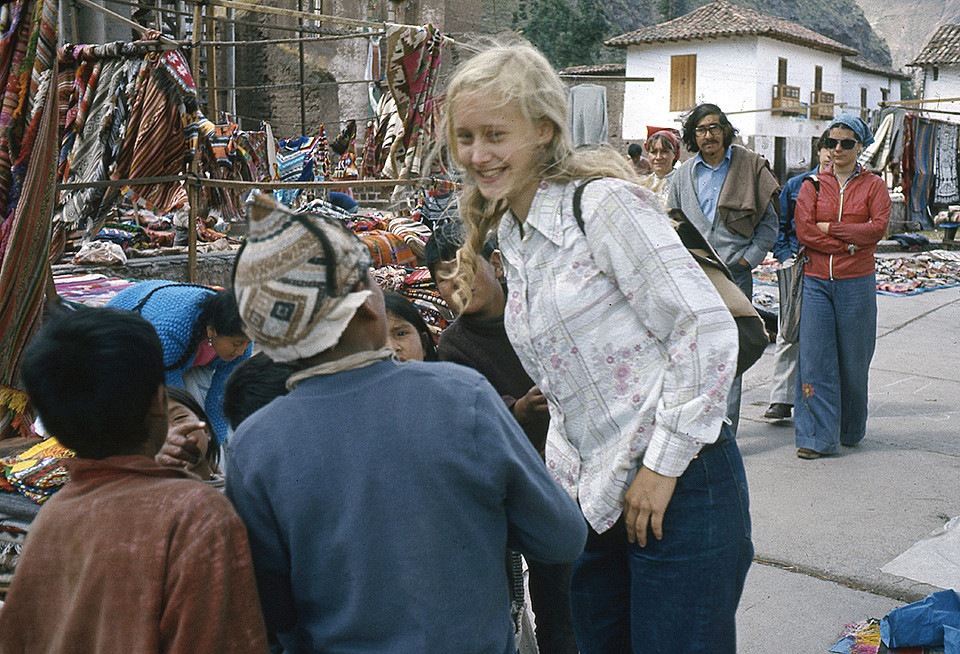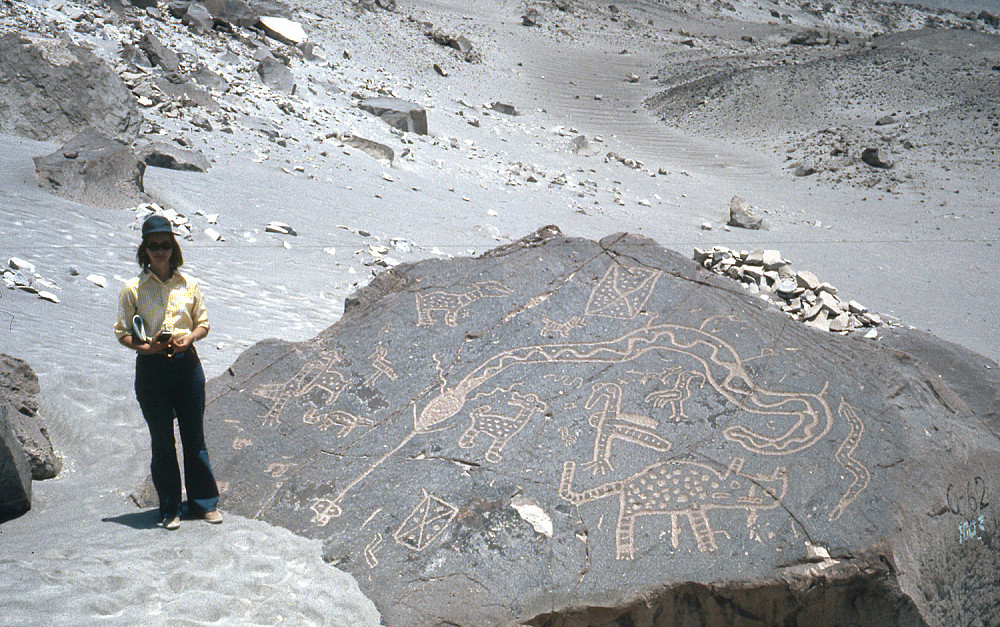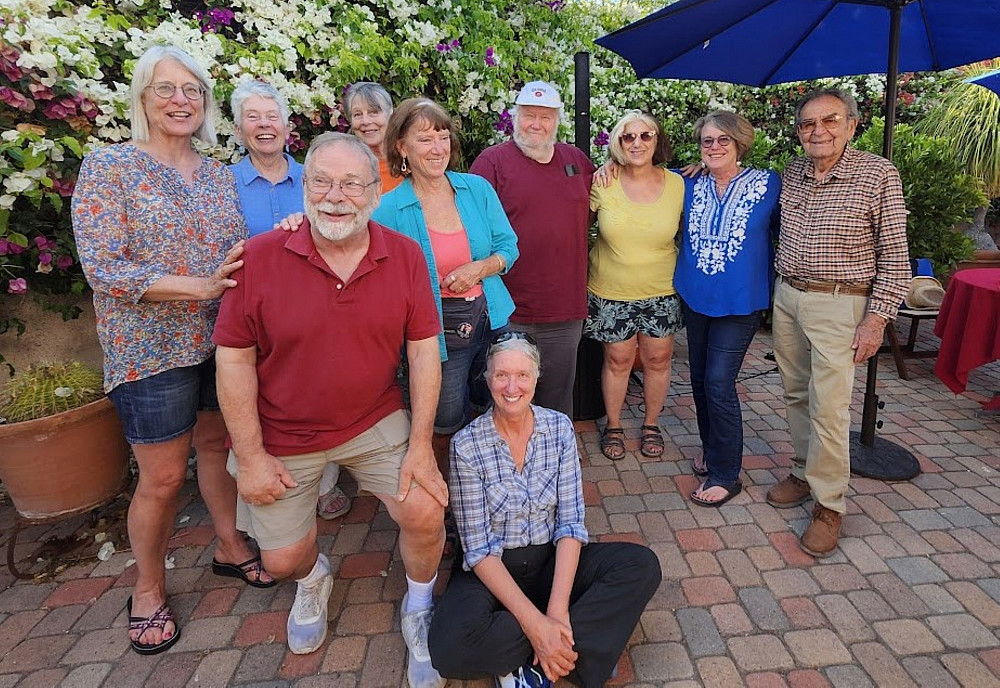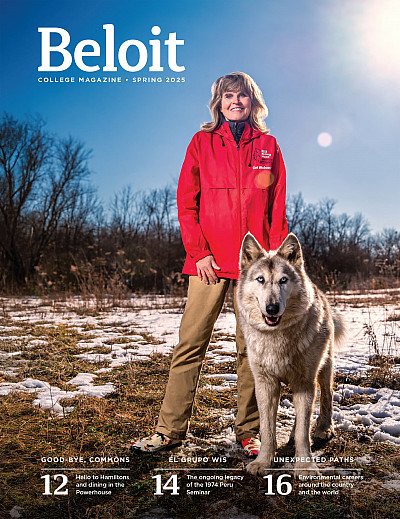The 1974 Peru Seminar’s Continuing Connections
Fifty years on from the 1974 Peru Seminar, participants look back and consider how that adventure in South America forged lasting connections and shaped their lives.
When nineteen Beloit students signed up for the Peruvian Seminar in the fall term of 1974, Peru seemed a remote and distant land. But we were an adventurous group. After all, we had chosen Beloit, which was known as an unconventional school, featuring the Beloit Plan, trimesters, field terms, and international study. Most of us didn’t know each other before preparing for and launching off to the southern hemisphere, but many of us had traveled and we shared a love of language and a desire to broaden our horizons. We represented the classes of 1975, 1976, and 1977, with majors in Spanish, anthropology, geography, international relations, Latin American studies, geology, history, economics, psychology, and chemistry. Little did we know then how much this adventure would shape our lives and how connected we would remain fifty years later.

Peru at that time was experiencing political upheaval, poised precariously between the military coups of 1968 and 1975, and the dawning of the leftist guerilla groups that emerged in 1980. These political movements were discussed in our classes and were evident in occasional student strikes, but life on the streets and in the Peruvian homes where we lived with local families seemed stable and safe. We were immersed in a complex society of Indigenous peoples intermixed and layered with the legacy of Spanish colonialism, with few English speakers and few tourists. In our homes, we experienced a cross section of society: wealthy families with inherited wealth, a rising middle class of professionals and small business owners, and an underclass of Indigenous servants. We saw the rural subsistence economy in the market where vendors sold corn, potatoes, coca leaves, alpaca sweaters, weavings, and other handicrafts, and in the informal settlements, Pueblos Jovenes, that were beginning to grow on the edges of the city as the rural poor migrated to urban areas in hopes of a better life.

Credit: Mary Wollenburg Mays ’77
Peru has hauntingly beautiful landscapes of rugged mountains, agriculturally terraced valleys, harsh deserts adjacent to miles of sandy coastline, and a remote Amazon rainforest to the east. Our seminar was in Arequipa, a city of white stone and colonial architecture perched in the southern highlands at an elevation of 7,660 feet, surrounded by the high peaks of the Andes Mountains. Professor Alonso Benavides, who grew up in Arequipa, designed the seminar with the assistance of seminar co-leader, and his wife at the time, Norma Benavides ’66. Through a partnership with the La Universidad Nacional de San Agustín de Arequipa, we took classes in Spanish with Peruvian professors and had a choice of studies in archeology, history, sociology, music and dance, Peruvian literature, and the Indigenous language of Quechua. We were each placed with a local family and there was little choice but to communicate in Spanish. From our base in Arequipa, we made excursions to Lima, Cuzco, Lake Titicaca, Machu Picchu, and the Pacific Ocean. We hiked through terraced valleys deep in the mountains to find petroglyphs and archaeological sites. We did not go unnoticed. The local media dubbed us “El Grupo Wis.”

Credit: Mary Wollenburg Mays ’77
Not everything went smoothly in that era before cell phones and the internet. Some students missed their flights and some fell afoul of new visa regulations. Others were exhausted by the long flights and high altitudes. We were surprised to find that altitude sickness could be alleviated by drinking mate de coca, a readily available herbal tea.
By writing papers, discussing ideas in class, living with families, and socializing with young Arequipeños, our Spanish improved and we soon became fluent. Our knowledge of Peru and ourselves was broadened not only through academic classes but also through our day-to-day experiences, where we faced cultural gaps and a few missteps. We were 19- and 20-year-old students, used to a more open and progressive lifestyle, now living in a much more traditional and religious society. Every experience brought us closer as a group, and our friendships deepened.
At the end of the seminar, we scattered as Beloit students will. Some of us stayed in Peru for a field term, some headed to field terms in Brazil, some traveled to other parts of Peru, others went on to seminars in Costa Rica and Spain, and some returned to campus for another trimester. Almost all of us made our way back to graduate from Beloit College. We tried to keep in touch over the years, as families grew and careers blossomed, with some small groups remaining closer through affinity or geography. El Grupo Wis has held reunions in Washington, D.C. in 1994, in Mystic, Connecticut in 2016, and via zoom in 2021, to reminisce, exchange stories, and confirm memories.
In August 2024, on the 50th anniversary of the seminar, we gathered in Santa Barbara, where Professor Benavides, now 95, continues to teach conversational Spanish in a local language institute that he founded, and where Norma Benavides also lives. Surrounded by bougainvilleas and in the shadow of the San Rafael Mountains, so evocative of Arequipa, Professor Benavides hosted us for a meal of Peruvian dishes, with a guitarist providing live music. Afterwards Professor Benavides said that he wished he had been able to learn more about our lives after the seminar — our work, our families, our travels. So, we compiled a book of our stories, each of us reflecting on how the seminar changed our lives, and what we have done since.

Our range of interests is astounding, but what we have in common is curiosity about the world. None of us followed a linear path in our lives or careers. Many pursued graduate degrees: two obtained Ph.D.s (anthropology, history and German), one became a medical doctor, one a chiropractic doctor, three became lawyers, and seven earned master’s degrees, in public health, art history, international affairs, business, geography, urban planning, and education. Many of us continue to use the Spanish language in our professional or personal lives. Betsy Murray ’77 has lived in Costa Rica for decades, and recently published a novel in Spanish. Quite a few of us pursued careers in international relations, international business, or related fields that have taken us to all corners of the world. Our eyes were opened in 1974 by the culture, landscape, and economy of Peru, which shaped our decisions to pursue careers ranging from arts and culture to environmental law to medicine. Social justice underlies the work of many of us who have pursued immigration law, public health, community development, and social change.
El Grupo Wis and the 1974 Peruvian seminar embody the value of a Beloit education, one that indeed provides a new perspective on the world, an unbeatable student experience, and a network for life. Fifty years later, we remain connected through our shared experience in an extraordinary time and place, made possible by our singular choice to attend Beloit College. Our unique paths and life choices since then add spice to our conversations as we continue to learn from each other.
El Grupo Wis: John Butler ’77, Jenni Dunn ’77, Courtney Federle ’77, Peggy Gleason ’77, Karen Goodhope ’76, Nicole Gotthelf ’76, David Keehn ’77, Bev Kramer ’77, Clare Kunny ’75, Charles Lipkin ’76, Kathryn Madden ’77, Jessica Mott ’75, Becca Mudge ’77, Betsy Murray ’77, Laura Ronan ’75, Sekip Senturk ’76, Michael Silbert ’75, Vicki Verdin ’76, Mary Wollenburg Mays ’77


